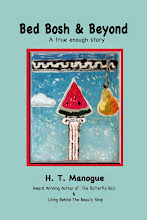In practical talk, a man’s common sense means his good judgment, his freedom from eccentricities, his gumption, to use the vernacular word. In philosophy it means something entirely different, it means his use of certain intellectual forms or categories of thought. Were we lobsters, or bees it might be that our organization would have led to our using quite different modes from these of apprehending our experiences. It might be too (we cannot dogmatically deny this) that such categories, unimaginable by us to-day, would have proved on the whole as serviceable for handling our experiences mentally as those which we actually use.
William James in his essay Pragmatism and Common Sense reminds us that we have become so hypnotized by a one-level thought process that anything outside of that level seems impractical as well as not real. We believe events happen and are beyond our control simple because we’re out of touch with the inner self. As James points out lobsters and bees never disconnect from the consciousness that forms the events they experience.
We view ourselves as pawns of fate so the idea of probable action seems like complete nonsense. Events seem inevitable and when this thought process is carried to excessive lengths it looks like we have no hand in our reality. We become victims in our self-created prison. There is an unknown reality or several unknown realities and our psychic, psychological, and spiritual essence functions in those realties and from them our physical experiences manifest.
This inner all-pervasive reality begins to present itself as we grow more responsive to it and accept our inner environment for what it is— Real. There’s no need to mediate for hours, or give up your day job, or study your own thought process with such focus that you ignore other activities. It simply means we are aware of our own expansion and become aware of our ability to self-create physical experiences. That means closing the separation that exists between the ego and the inner self.
When we begin to sense who we really are, we realize there are different species of selves just like there are different species of worlds. In practical talk when we identify with only one level of our thought process, our other thought processes appear alien. We feel threatened by them and we fight to uphold our ideas of selfhood.
One leaf does not threaten the existence of other leaves and the plant is not threatened by its foliage. Nature shows us our own multiplicity, but we are too conditioned and firmly rooted in our belief structure to understand the real nature of the self.
Subscribe to:
Post Comments (Atom)










No comments:
Post a Comment